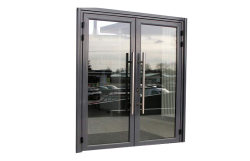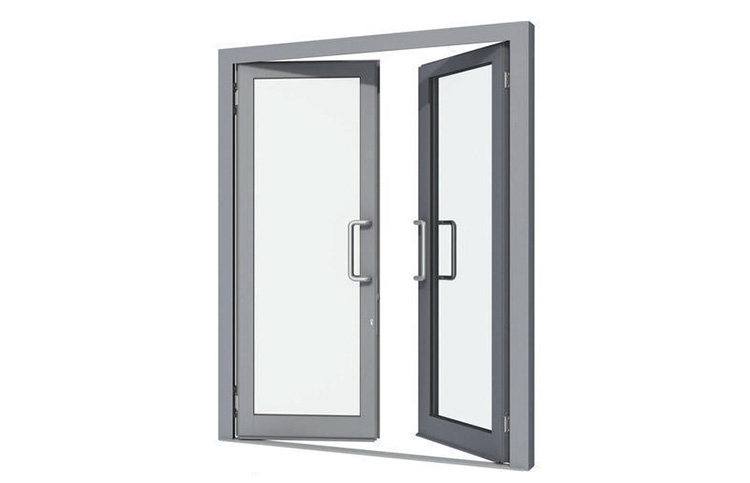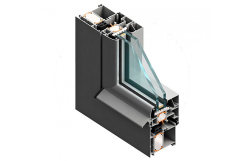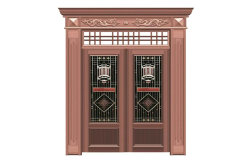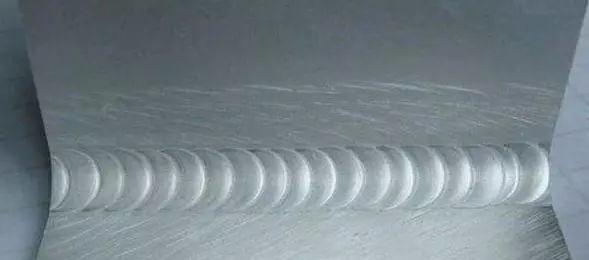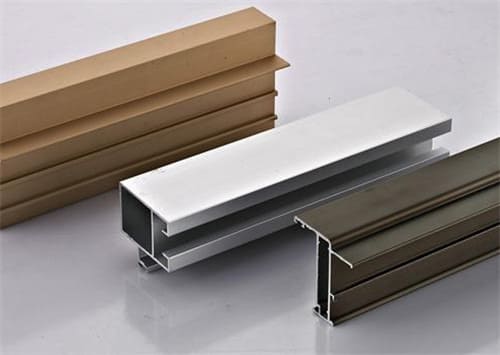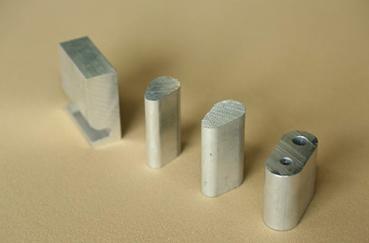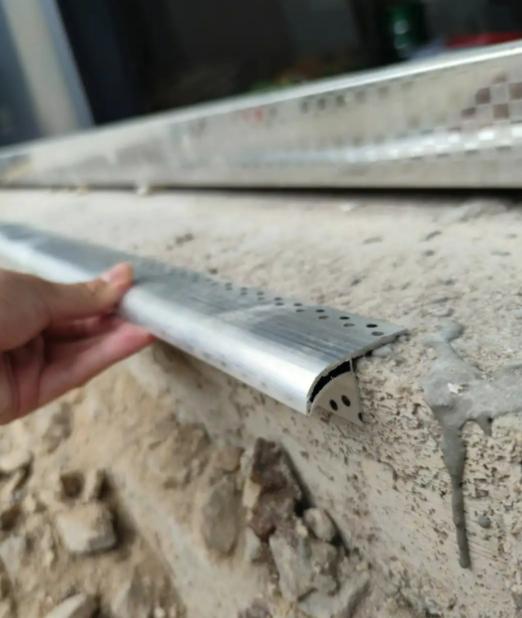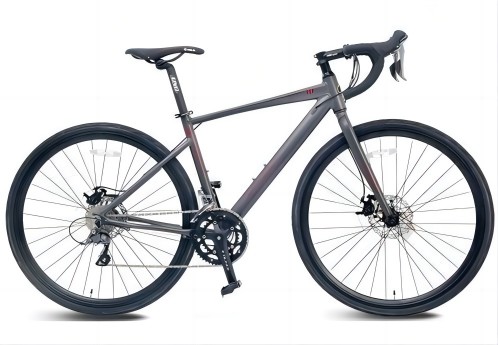Aluminum alloy is a popular material for both sliding and swing doors because it is strong, lightweight, and resistant to corrosion. However, there are many different types of aluminum alloys, each with its own unique properties. So, is the aluminum alloy the same between aluminum sliding doors and aluminum swing doors?
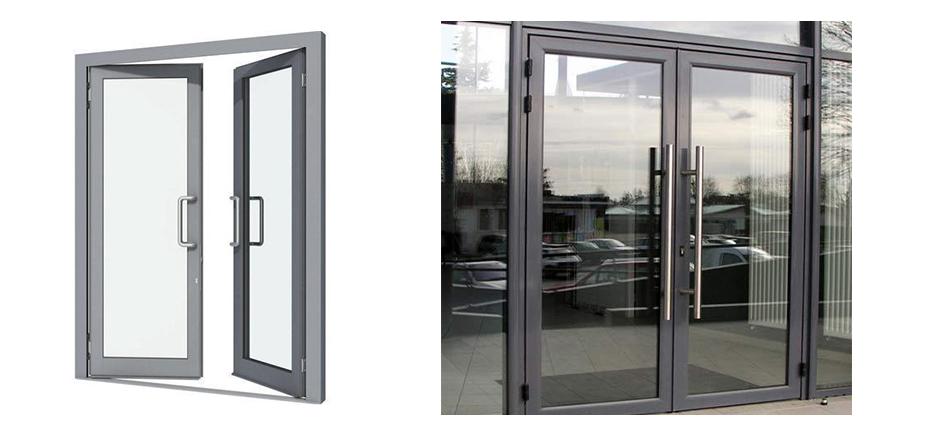
Aluminum Alloys Used in Sliding Doors
The most common aluminum alloys used in sliding doors are 6061 and 6063. These alloys are strong, lightweight, and resistant to corrosion. They are also relatively inexpensive, making them a good choice for sliding doors.
6061 aluminum alloy is a heat-treatable alloy that is known for its strength, durability, and good corrosion resistance. It is also relatively easy to machine, making it a popular choice for a wide range of applications, including sliding doors.
6063 aluminum alloy is a non-heat-treatable alloy that is known for its good formability, corrosion resistance, and weldability. It is also relatively inexpensive, making it a good choice for sliding doors that do not require the same level of strength and durability as 6061 aluminum alloy.
Aluminum Alloys Used in Swing Doors
The most common aluminum alloys used in swing doors are 6061 and 6063, just like in sliding doors. However, swing doors often require stronger aluminum alloys than sliding doors, especially if they are large or heavy.
For example, 7075 aluminum alloy is often used for swing doors that are exposed to high winds or other extreme weather conditions. 7075 aluminum alloy is a high-strength alloy that is known for its excellent durability and corrosion resistance. It is also relatively lightweight, making it a good choice for swing doors.
Other aluminum alloys that may be used in swing doors include 6082 aluminum alloy and 5086 aluminum alloy. 6082 aluminum alloy is a medium-strength alloy that is known for its good corrosion resistance and weldability. 5086 aluminum alloy is a non-heat-treatable alloy that is known for its good formability and corrosion resistance.
Is the Aluminum Alloy the Same Between Aluminum Sliding Doors and Aluminum Swing Doors?
The aluminum alloy used in a sliding door or swing door will depend on the specific requirements of the door. For example, a large or heavy swing door will require a stronger aluminum alloy than a small or lightweight sliding door.
However, the most common aluminum alloys used in both sliding and swing doors are 6061 and 6063. These alloys are strong, lightweight, and resistant to corrosion. They are also relatively inexpensive, making them a good choice for both sliding and swing doors.
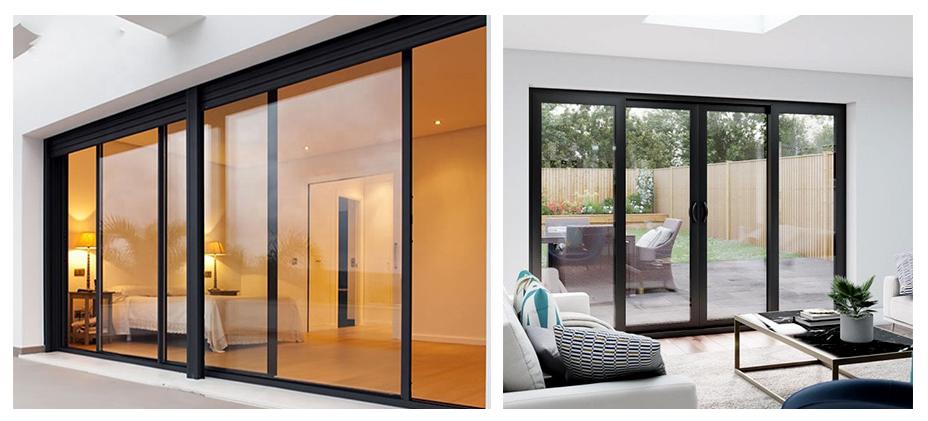
Other Factors That Affect the Strength and Durability of Aluminum Sliding Doors and Swing Doors
In addition to the aluminum alloy, there are other factors that can affect the strength and durability of a sliding or swing door, such as the door’s design and construction.
For example, a sliding door with a large glass panel will be less durable than a sliding door with a smaller glass panel. This is because the larger glass panel is more likely to crack or break if it is impacted.
Similarly, a swing door that is made with a thin aluminum frame will be less durable than a swing door that is made with a thicker aluminum frame. This is because the thicker aluminum frame will provide more support for the door and make it less likely to bend or warp.
How to Choose the Right Aluminum Alloy for Your Sliding Door or Swing Door?
When choosing an aluminum alloy for your sliding door or swing door, it is important to consider the specific requirements of the door. For example, if you need a door that is strong and durable, you will need to choose a stronger aluminum alloy.
You should also consider the budget for your project. Stronger aluminum alloys are typically more expensive than weaker aluminum alloys.
If you are unsure which aluminum alloy is right for your needs, it is important to consult with a qualified door professional. They can help you choose the right aluminum alloy and door design for your specific needs.
Here are some additional things to consider when choosing an aluminum sliding door or swing door:
- The size and weight of the door: Larger and heavier doors will require stronger aluminum alloys.
- The location of the door: Doors that are exposed to extreme weather conditions, such as high winds or heavy snow, will require stronger aluminum alloys.
- The intended use of the door: Doors that are used frequently, such as front doors or back doors, will need to be made with a more durable aluminum alloy.
- The budget for the project: Stronger aluminum alloys are typically more expensive than weaker aluminum alloys.
Conclusion
In conclusion, aluminum can be used to make both sliding and swing doors that are strong, lightweight, and resistant to corrosion. The most common aluminum alloys used in both types of doors are 6061 and 6063. However, swing doors often require stronger aluminum alloys than sliding doors, especially if they are large or heavy. For example, 7075 aluminum alloy is often used for swing doors that are exposed to high winds or other extreme weather conditions.
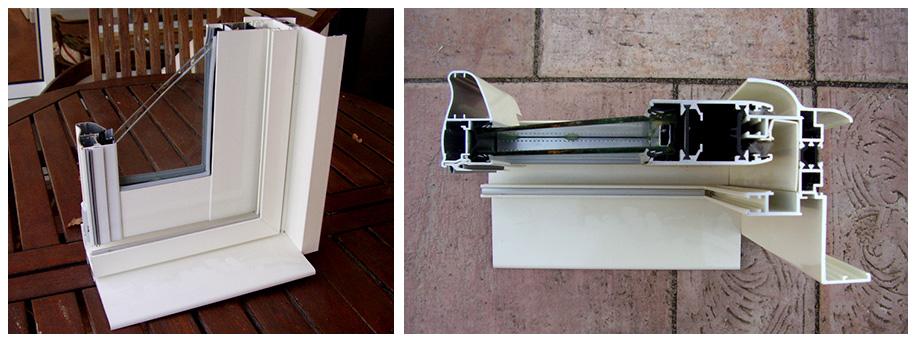
When choosing an aluminum alloy for your sliding or swing door, it is important to consider the specific requirements of the door, such as the size and weight of the door, the location of the door, and the intended use of the door. You should also consider the budget for your project.
If you are unsure which aluminum alloy is right for your needs, it is important to consult with a qualified door professional. They can help you choose the right aluminum alloy and door design for your specific needs.

